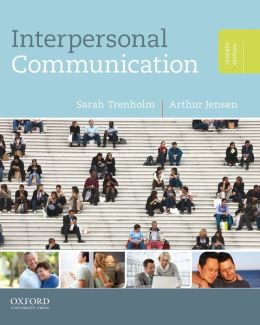Synthesis
There
is no getting around it, I want to be a speech therapist. This means that I need
to study hard in the communication field and advance my caring personality. According
to the American Speech and Language Association, to have a career in speech
means I have to be “professionally competent” and “follow an ethical code” (American
Speech and Language Association). These are both extremely important concepts
that were further pronounced to me during my blogging process.
Blogging about my perspective field has
shown me just how important it is to work hard in my communication and writing
courses. To be “professionally competent” means I have to continue learning effectively
so that I will be able to “do the best of your
ability” and use “training and instruments properly” (American Speech and
Language Association). Every source I have read over the time I have spent
blogging leans to just how important having a solid education is in speech
therapy. This only inspires me to work harder at becoming a ST. Further, my
blog has provided me with numerous examples of how a professional in the communication
field writes. Professionals write a fairly
impressive amount each day between “emails to [her] department, charity
organization planning, and human resource paper work [she] writes every day”
(Ray). This made me realize that I need to work to improve my writing in all
styles. I practice writing somewhat informally for my blog, and practice
formality with my college courses. My schooling is helping me prepare to be a professionally
competent speech therapist.
Along
with the proper education, my blog has emphasized how important being sensitive
to other’s needs is for a ST. I plan to work with children who have special
needs. This is a task that is especially crucial to be caring. Attempting to
help teach ways to communicate will be a different process for each child.
Knowing the client’s needs and how to accommodate to their needs is a job cut
out for only a person who is caring. Articles I have read for my blog from the
American Journal of Speech and Language Pathology all somewhat describe the
type of personality needed to work in speech. A main example of this is that an
entire study was conducted to see if children who were self-conscious of their
speech were the children who saw a SLP. The language of the article on this
study sounds almost sympathetic to the children (mainly those actually with a
SSD). Online sources also direct people
who are sympathetic to other people’s needs toward speech therapy. The Speech
Path quiz I took even took if I was caring or not into consideration to
determine if I would make a good ST. Throughout my blog, evidence of my caring
personality is clear. I express sympathy and desire to help children with SDD
frequently. This is one properly done part of my blog, which is also important
because it helped me realize how sympathetic I actually am. Rereading my posts
has reassured me that I am sensitive to other’s needs. This fact also somewhat
alarms me, because I now worry I may be too compassionate. My blog may be
overly sensitive, to the point where I show biases. I overwhelmingly side with
anything speech related. This may not be all bad though, because it is further
self-prof that I may make an able ST.
Blogging
has prepared me for my future career, and I hope this blog will help readers
learn similar lessons. I will use improved writing skills, new awareness of
caring traits, and new motivation to learn to guide me into a successful career
of speech therapy.
Works Cited
"Should You Become a Speech Pathologist?" Speech Pathologist Quiz Results. N.p., n.d. Web. 07 Nov. 2013.
Mcleod, Sherryann. "Speech Sound Disorders in a Community Study of Preschool Children." American Journal of Speech-Language Pathology 22 (2013): 503-22. Print.
American Speech-Language-Hearing Association. (2010). Code of ethics [Ethics]. Available from www.asha.org/policy.





